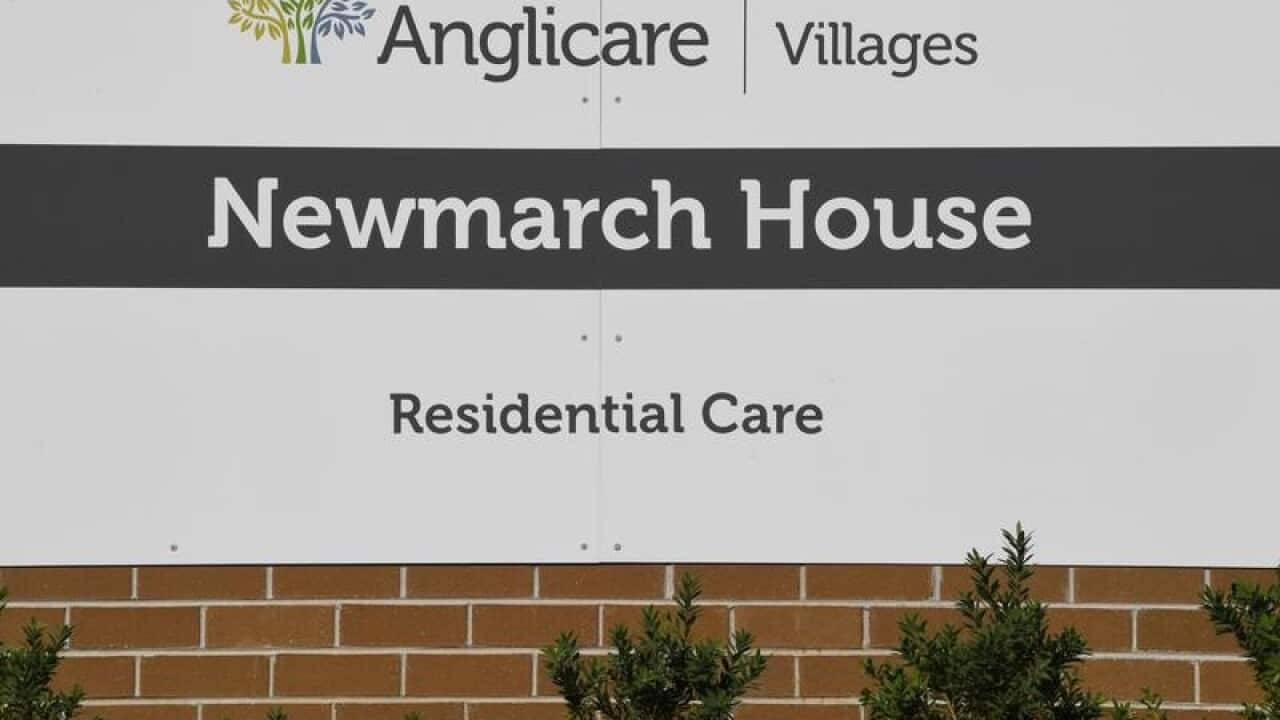An 85-year-old aged care resident in locked-down Melbourne says she'd rather be dead.
Merle Mitchell, who has been in residential aged care since 2016, is only allowed to leave her room four times a week in one-hour stints for physiotherapy.
Her only glimpse of the outside world is through a single window, she told the Royal Commission into Aged Care on Monday.
"I can look at a brick wall but that's all. There's nothing else to look at," she said.
The commission is examining the aged care sector's response to the coronavirus pandemic, focusing mainly on two deadly outbreaks at separate Sydney homes.
It is not looking at Victoria's crisis out of sensitivity to those involved and its evolving nature.
There have been no virus cases at Ms Mitchell's aged home in Glen Waverley but she said restrictions have impacted care and made life very difficult for residents.
She has decided to miss external medical appointments to avoid going into stricter two-week isolation upon her return.
"I've got to the stage of being accepting. I'm here until I die," she said.
"Every morning when I wake up I think 'damn I've woken up'. If you asked most people here they would all say they would rather be dead rather than living here, if they're honest."
Friends and family of residents at the facility, which is home to about 130 people, have had visitation reduced.
"For those with dementia it has been very difficult," Ms Mitchell said.
"I don't think they understand the lockdown, why family are not coming to see them. Many people here had family who came in every day, at least once a day.
"They helped with all sorts of little things, just companionship really. That has all gone."
Aged care flaws 'exposed' by virus
Australia's virus aged care death rate is among the highest in the world, at 68 per cent, counsel assisting the commission Peter Rozen QC said on Monday.
As of Sunday, 203 of the nation's almost 300 deaths had been in aged care, and 14 of Victoria's 19 virus deaths recorded on Monday were linked to the sector.
Mr Rozen said while much had been done to prepare the national health system, neither the Federal Health Department nor aged care regulator Aged Care Quality and Safety Commissioner had developed a sector-specific coronavirus plan.
Mr Rozen said aged care was offered no virus advice from either body from 19 June to 3 August, a "crucial period" in the pandemic when cases in Victoria spiked.
"The COVID-19 pandemic has starkly exposed all of the flaws of the aged care sector," Mr Rozen said.
Federal and NSW governments were at a "stand off" early in the deadly outbreak at Sydney's Newmarch House over whether to hospitalise residents, the commission heard.
Mr Rozen said meeting records showed NSW Health in April had a preference not to move virus-positive residents into hospital to avoid setting "a precedent" around transfers.
Of 37 positive residents, two were transferred to hospital. One of those died, with another other 16 fatalities occurring at the home.
"To put it very directly, older people are not less deserving of care because they are old," Mr Rozen said.
Anglicare Sydney, which runs Newmarch House, had little or no say in whether virus-positive residents would be transferred to hospital, he added.
Mr Rozen said there was a lack of high-level infection control expertise at Newmarch House, which adopted a "hospital in the home" approach, until at least a fortnight into the outbreak.
A manager deployed to help Newmarch House from BaptistCare, the operator of Dorothy Henderson Lodge which also experienced a deadly outbreak, said staff management was a challenge with workers quarantined.
"They were coming (to Newmarch) from so many areas with varying competencies," Melanie Dicks said.
"We had new staff that didn't fully understand what hospital in the home model was. We needed to continually orient those staff as well." Six residents at northern Sydney's Dorothy Henderson Lodge died from the virus, with 13 of the home's 16 cases sent to hospital.
Six residents at northern Sydney's Dorothy Henderson Lodge died from the virus, with 13 of the home's 16 cases sent to hospital.

A worker leaves the Anglicare Newmarch House in Western Sydney, the aged care facility worst hit by the virus in New South Wales. Source: AAP
Ms Dicks said hospitalisation helped the facility better contain the virus and manage staffing.
The Royal Commission is holding hearings over three days to examine the virus response but Victoria's outbreak is not part of the scope due to its evolving nature.
Mr Rozen said the commission had received hundreds of submissions, some of which refer to inadequate staff infection control training and lack of access to personal protective equipment.
People in Australia must stay at least 1.5 metres away from others. Check your state’s restrictions on gathering limits.
If you are experiencing cold or flu symptoms, stay home and arrange a test by calling your doctor or contact the Coronavirus Health Information Hotline on 1800 020 080. News and information is available in 63 languages at
Metropolitan Melbourne residents are subject to Stage 4 restrictions and must comply with a curfew between the hours of 8pm and 5am.
During the curfew, people in Melbourne can only leave their house for work, and essential health, care or safety reasons.
Between 5am and 8pm, people in Melbourne can leave the home for exercise, to shop for necessary goods and services, for work, for health care, or to care for a sick or elderly relative. The full list of restrictions can be found here.
All Victorians must wear a face covering when they leave home, no matter where they live.





